What Causes a Heart Attack?
Heart attacks are caused by plaque buildup that blocks an artery. Heart experts from National Jewish Health explain how to prevent plaque buildup and when to seek help for chest pain.
Watch the video to learn more.
Transcript
A heart attack or the medical term, myocardial infarction, it literally means that part of the heart has actually died.
So atherosclerosis is the hardening of the arteries we often hear.
What happens is sludge builds up on the pipes and over time it can actually get to a point where it really restricts blood flow.
That creates angina.
But a heart attack is a sudden rupture of a plaque, some sludgy areas in the arteries, and suddenly blocks the artery altogether, and that causes incredible pain to the heart.
And, if is left long enough, meaning if we don't put in a stint or bypass or try to get rid of the clot in some way it can lead to death.
Related Videos
Related Health Insights and News
Want to use this on your website? Fill out the content usage request form and then copy this code: https://youtu.be/q__Sp_2HCW8

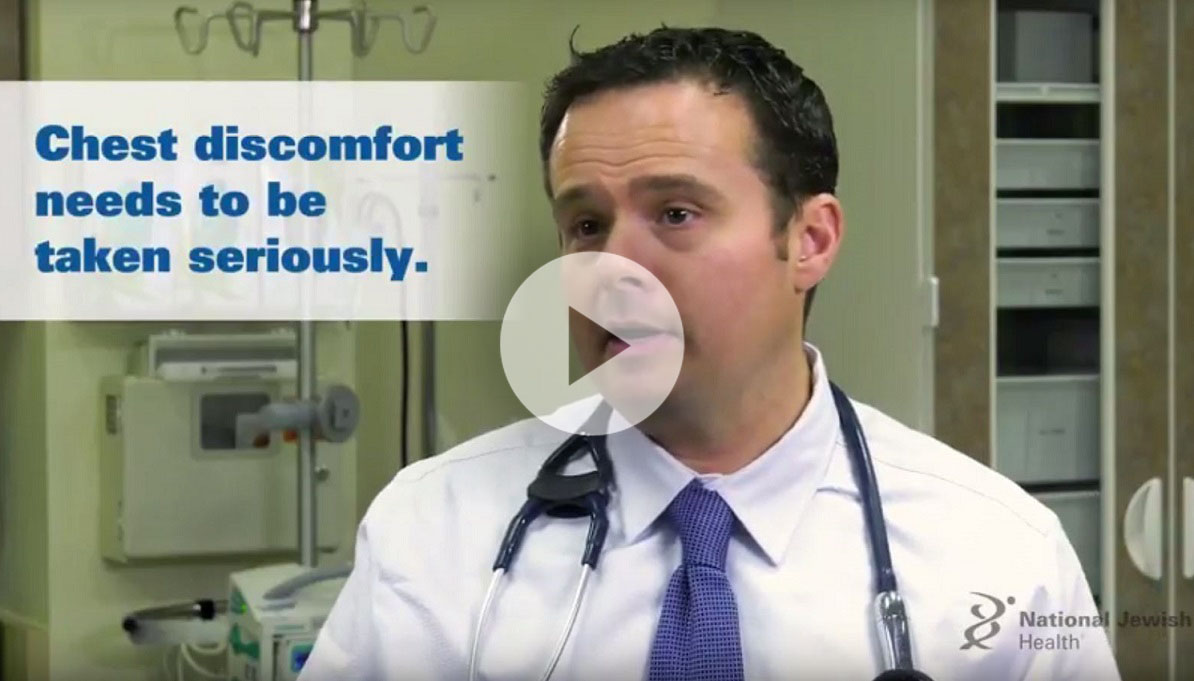.JPG?lang=en-US&ext=.jpg)
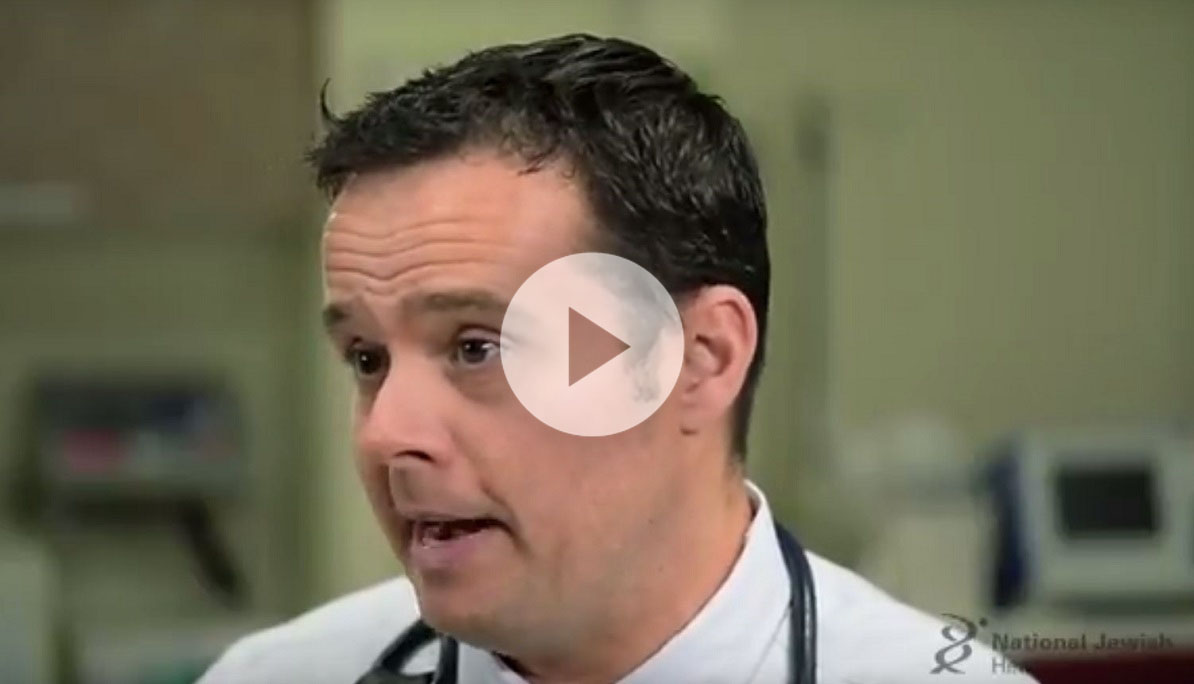

-(1).JPG?lang=en-US&ext=.jpg)
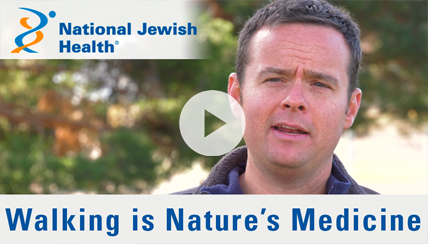
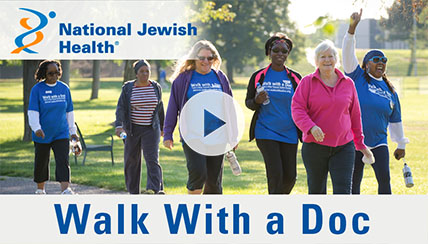
.JPG?lang=en-US&ext=.jpg)
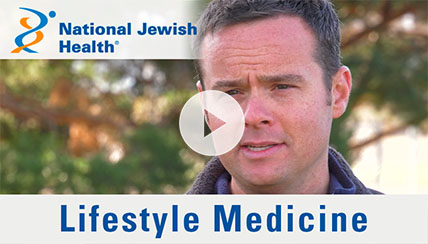
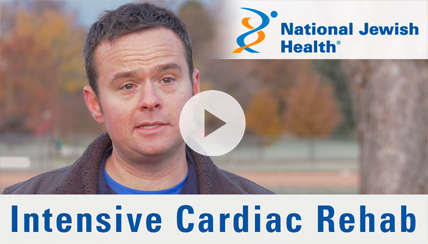

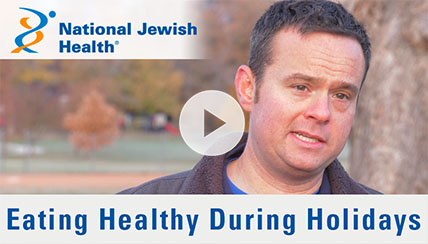
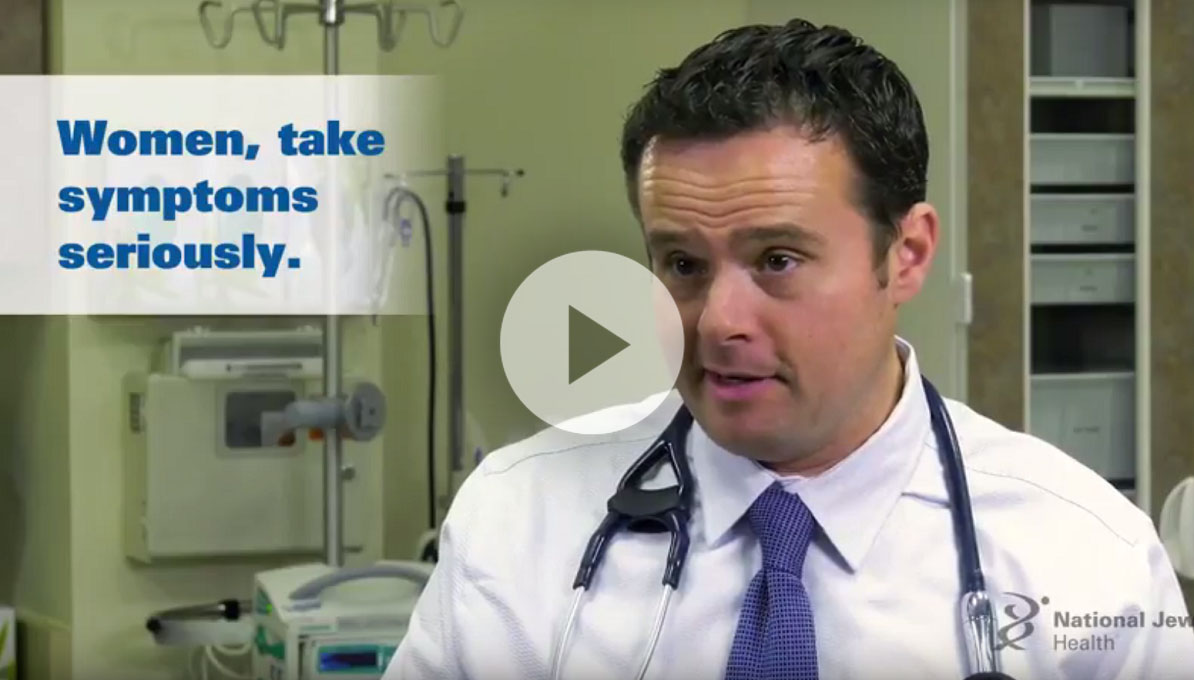
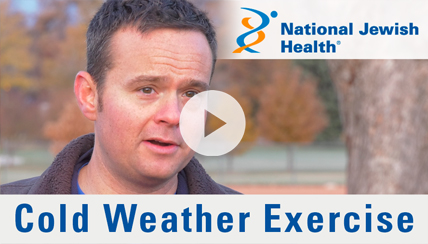
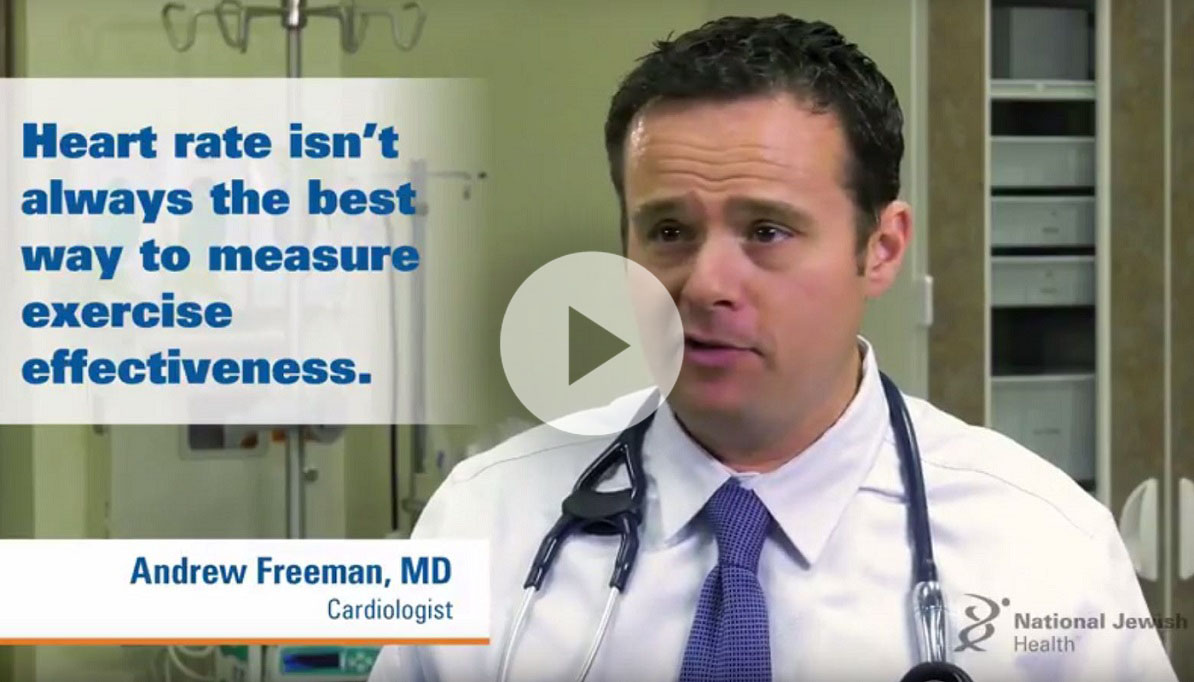.JPG?lang=en-US&ext=.jpg)
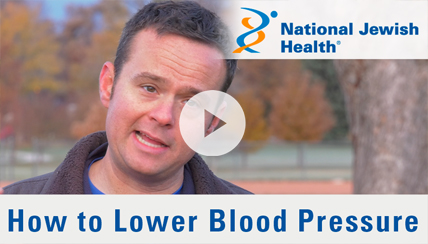
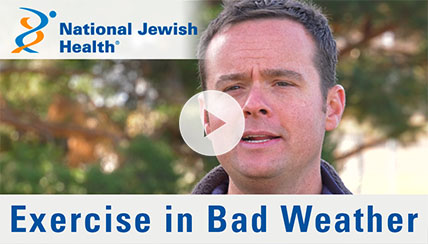
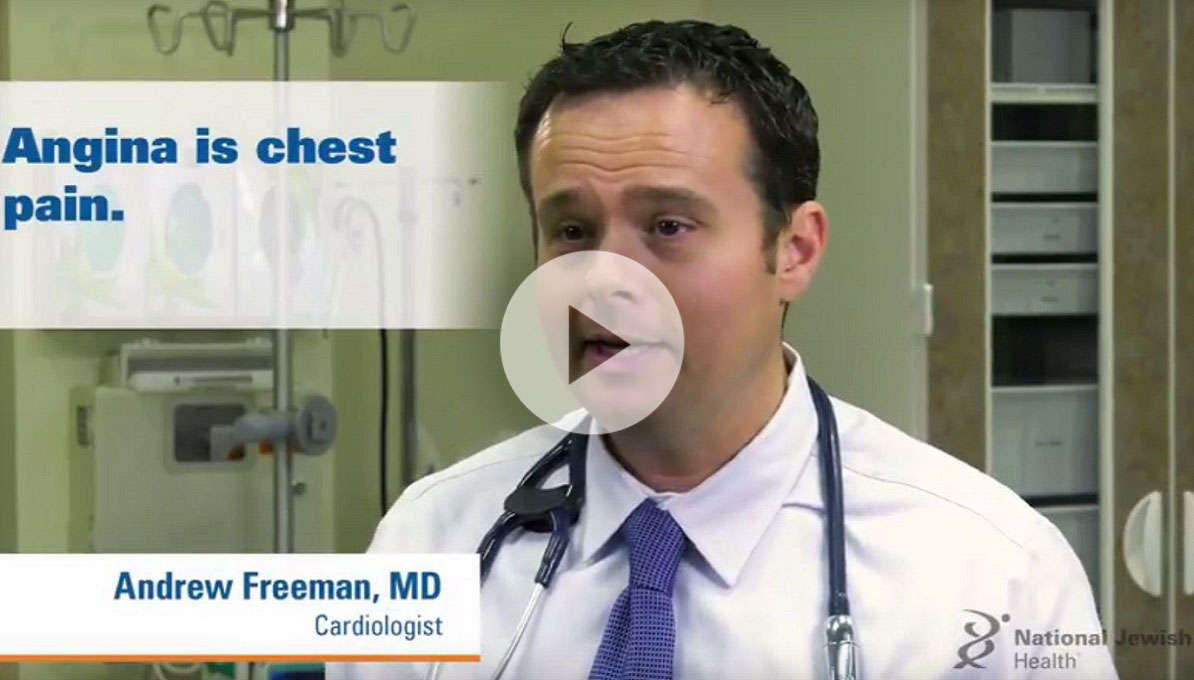.JPG?lang=en-US&ext=.jpg)

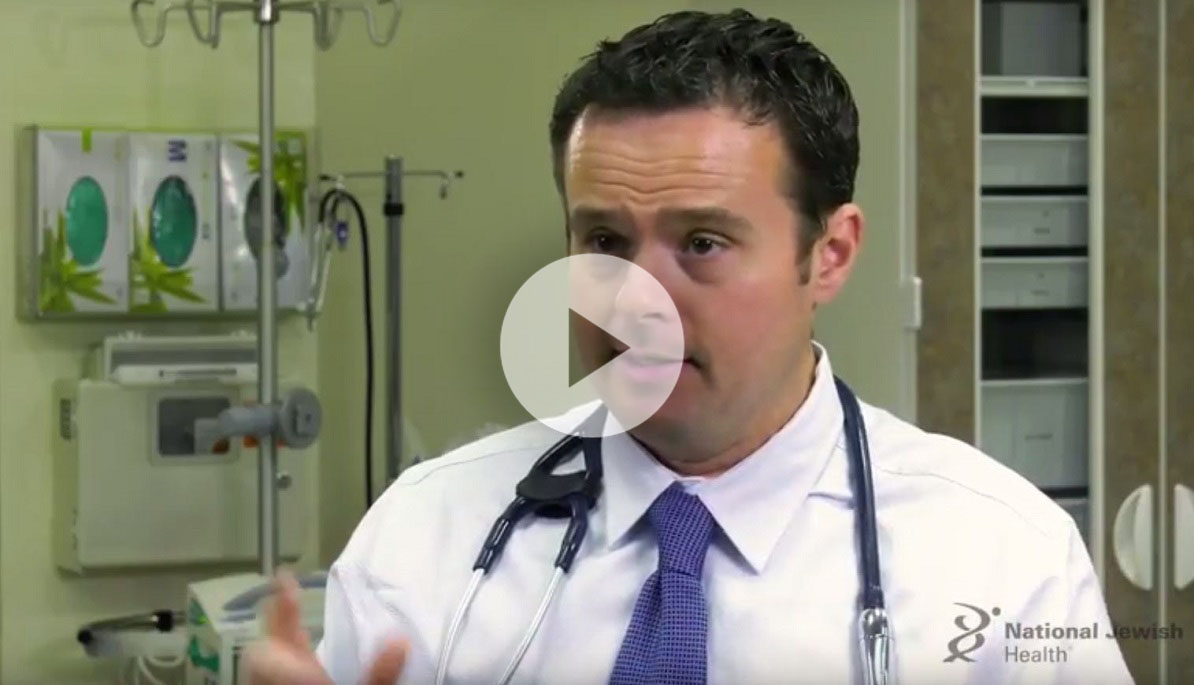.JPG?lang=en-US&ext=.jpg)
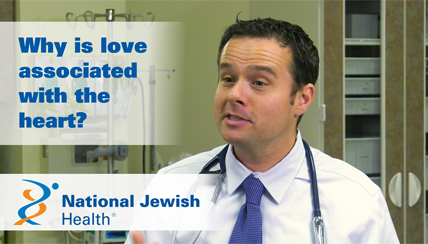


-(2).JPG?lang=en-US&ext=.jpg)




